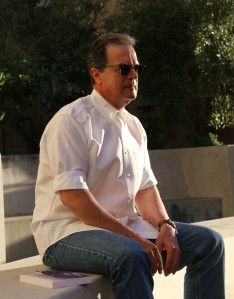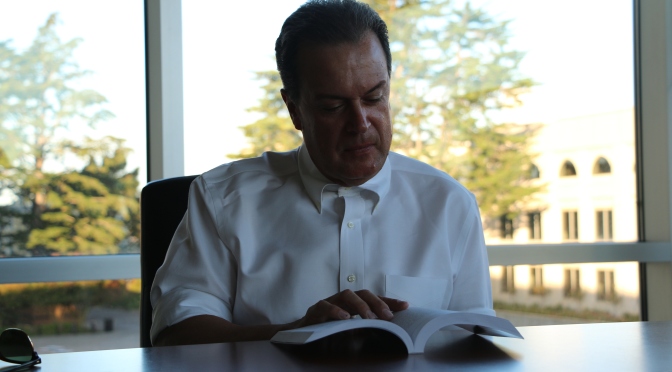Rita McNeil
Contributing Writer
USF Communication Studies Professor Bryan Whaley was in the oncology unit at the Children’s Hospital and Research Center Oakland back in 2004 with his then nine-year-old daughter, facing a situation he never thought possible. His daughter had been sick for weeks, and Whaley was told she might have colon cancer. As he sat in the waiting room, he watched as another young girl went in for chemotherapy and thought to himself, “I don’t believe I’m living through this.”

As it turned out, Whaley never had to watch his own daughter go through chemotherapy as his it was just an odd colon infection. His experience in the hospital with the staff gave him the idea for his newly published book, Research Methods in Health Communication, which was released on June 30, 2014.
According to Whaley, what makes communication in health different are the types of messages medical practitioners are required to communicate and the wealth of interpersonal skills they need to have, even though college curriculum offers little practical experience. Whaley mentioned that messages dealing with social support, bad news, medical adherence, and reassurance to patients and families are extremely important to their patient’s health.
Watching the staff employ these communication tools caused Whaley to realize that there was no book out there of this kind. “The whole idea kind of crystallized watching them and going through this experience [with my daughter],” said Whaley.
Mindi Golden, an associate professor in the communication studies department at San Francisco State University and co-author of a chapter in Whaley’s book, said that this is the first book of its kind that focuses on a variety of research methodologies in health communication.
“Readers can see how different research methods illuminate our understandings of health communication, and how methods can coexist to produce more complete understandings of health communication phenomena,” said Golden.
Golden, who has collaborated on projects with Whaley in the past 20 years, said, “During what was likely the most frightening time in Dr. Whaley’s life, he watched doctors engage in a careful process of hypothesis testing. The nature of his daughter’s condition was accurately identified and successfully treated through this process, although its root cause remains unknown.”
Whaley got a large part of his inspiration from Dr. James M. Betts. Betts was the main doctor involved in helping Whaley and his family cope with the difficult situation.
Whaley recalls that when he first went into the hospital room with his daughter in the oncology unit, the nurses told Whaley that he was in good hands. Betts is a world-renowned surgeon and “really just a wonderful guy,” said Whaley.
Whaley also remembers when his daughter first went in for surgery with Betts. At this stage, the medical team thought they would be removing her appendix. But when they realized the infection they found was like nothing they’d ever seen before, they called in Whaley and his wife to discuss their next plan of action.
Whaley left it up to the discretion of their medical team and remembers Betts saying, “Look, when your kid is on the table, she’s my daughter,” Whaley recalled, “And I really appreciated that.”
Whaley dedicated the book not just to Betts, but to the extraordinary staff that made the whole experience that much better. “From the parking attendants, to the cafeteria people, to the people that clean your rooms, it’s just amazing what these people are doing,” said Whaley.
He said that the health profession is so unique because “not only do we expect medical practitioners to have the latest clinical expertise and technology, but we expect them to have the most cutting edge interpersonal skills, too.” But when you have someone like Betts, they have it all, according to Whaley. “They’re just too damn good at what they do over there.”
Whaley has since contacted Betts and they plan to meet up over winter break, along with Whaley’s daughter, to present a copy of his new book to him and the Children’s Hospital and Research Center Oakland staff in gratitude for their support.

